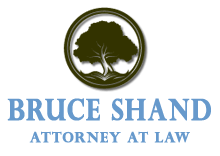When Wills Don’t Work (And Sometimes Why). Properly Titling your Utah Property Is Important
Most people assume that their wills are the ultimate guide on who gets their bank or brokerage accounts after they die. But a person’s last words may not, in fact, be the last word. An estate plan can be undermined by the way an account owner names—or titles—beneficiaries to their accounts.
So your Will is just that, your Last Will and Testament. After all, this is the legal document to set it all down and get it all straight, right? Wrong.
The key to the disposition of your estate is how your assets are “titled” and how the beneficiaries are designated.
In fact, none other than the The Wall Street Journal considered this subject in a recent article titled “A Will Is Not Alwayv s the Last Word.”
Essentially, your Will is a powerful piece of legal documentation. It is oftentimes the centerpiece of an estate plan and the north star of a probate proceeding. However, for many Americans, their estate planning is a hodge podge of formal legal planning (e.g., a Last Will and Testament) and more informal planning (e.g., beneficiary designations on retirement funds or other assets outside of a Last Will).
Assets that pass “outside” of the control of a Last Will are not subject to the controls you establish in your Last Will. An example of the problems that this can create recently came to my office. Parent wanted one of three children to help him with his daily bill paying. To facilitate this, one child was placed on the parent’s bank account as “pay on death”. Parent wished to divide all of the assets equally between his three children upon his death and said so in his will. Upon the death of the Parent, all of the money in the bank account, a substantial portion of the Parent’s estate went to the one child and bypassed the will entirely, leaving the other two children without an equal share of the Parent’s bank account.
As the original article notes and common sense validates, the careful coordination of your estate planning legal documents (i.e., Last Will and Testament, Revocable Living Trust, etc.) and the titling/beneficiary designations of your assets is fundamental to the success of your estate distribution objectives.
Reference: The Wall Street Journal (November 10, 2013) “A Will Is Not Always the Last Word”










Leave a Reply
Want to join the discussion?Feel free to contribute!